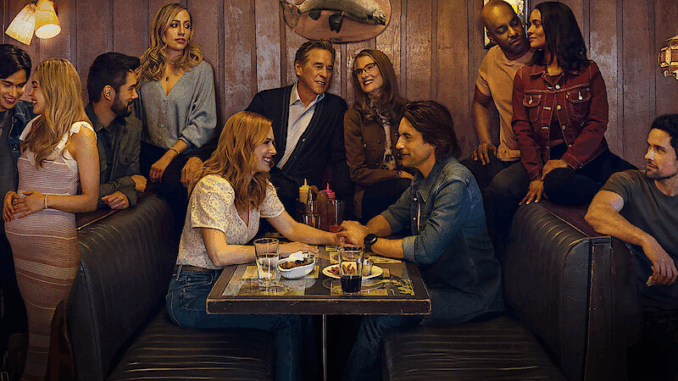
A Quiet Hit That Took the World by Storm
When Virgin River premiered on Netflix in 2019, few could have predicted that a low-key drama about a remote Northern California town would become a global phenomenon. Yet season after season, the show has quietly amassed a loyal fanbase, inspiring everything from book clubs to fan theories. Heading into Season 7, Virgin River isn’t just a feel-good romance—it’s a cultural comfort blanket.
The series, based on Robyn Carr’s best-selling novels, is more than just about love and loss. It’s about resilience, healing, and the profound power of community. Viewers don’t just watch the drama unfold—they feel like residents of Virgin River themselves.
The Setting: A Character in Itself
One of Virgin River’s most distinctive features is its breathtaking setting. Filmed primarily in British Columbia, Canada, the town is surrounded by towering evergreens, misty rivers, and quiet mountain roads. The scenery alone makes the show an escape from everyday life.
But Virgin River isn’t just a beautiful place. It’s a town with a soul. From the local bar to the community potlucks, from the town doctor’s clinic to the mayor’s living room, each location feels lived-in and familiar. It evokes nostalgia for a simpler, more connected way of life.
Mel’s Journey: Starting Over with Pain and Purpose
At the heart of the series is Melinda “Mel” Monroe, a nurse practitioner and midwife from Los Angeles who moves to Virgin River after a personal tragedy. She’s seeking peace, but instead finds emotional turbulence—and a new home.
Mel’s story resonates with viewers because it doesn’t rush healing. Her grief over losing her husband and baby is portrayed with raw honesty. Her growing love for Jack doesn’t erase her pain—it exists alongside it. That emotional complexity is rare in romantic television and part of what sets Virgin River apart.
Jack Sheridan: A Protector with a Fragile Heart

Jack is the kind of romantic lead rarely seen in modern dramas—strong but gentle, tough but tender. A former Marine running a local bar, he’s as emotionally wounded as Mel, carrying the burden of PTSD and family estrangement. His arc is one of slow vulnerability, particularly in his struggles with fatherhood, commitment, and trust.
The show’s careful exploration of male mental health, emotional communication, and healthy masculinity is a major reason why audiences of all genders connect with Jack.
Secondary Characters with Primary Impact
While Mel and Jack are the anchors, Virgin River thrives because of its rich ensemble cast. Doc Mullins and Hope bring humor and heart. Preacher, a former Marine turned chef, adds moral gravitas. Brie, Jack’s sister, faces her own demons in the form of trauma and romantic uncertainty. Even side characters like Lizzie, Denny, and Cameron have layered storylines.
This interconnected web of lives is what gives the series its warmth. Each character has their own journey, and the show never rushes or trivializes their growth.
Themes That Matter
While marketed as a romance, Virgin River deals with real, often difficult topics:
-
Grief and Loss
-
Addiction and Recovery
-
Sexual Assault and Consent
-
PTSD and Veterans’ Issues
-
Infertility and Medical Ethics
-
Community Building and Forgiveness
It does all of this without sensationalism, opting instead for slow, character-driven storytelling. The result is a show that feels emotionally honest and, at times, therapeutic to watch.
The Enduring Appeal of Comfort Television
In a world filled with high-stakes thrillers and dark prestige dramas, Virgin River offers something rare: emotional safety. You can cry, laugh, and exhale knowing that no matter how heavy the subject matter, there’s always light at the end of the tunnel.
This “comfort TV” appeal is especially potent in times of uncertainty, which is perhaps why the show exploded in popularity during the pandemic and remains a top-streamed series to this day.
Conclusion: Virgin River’s Legacy
As Virgin River heads toward its final season, it has secured its place in the modern television landscape. Not as the flashiest show, but as one of the most emotionally grounded, consistently warm, and quietly revolutionary dramas in years.
It proves that authenticity beats spectacle, and that audiences still crave stories about kindness, second chances, and the healing power of love—set in a town where everyone knows your name.
